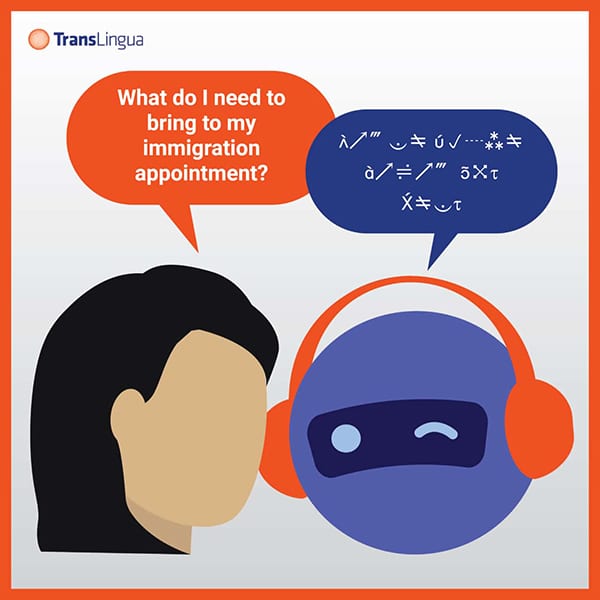

No, we are not talking about the 2003 movie with Bill Murray and Scarlett Johansson…
These days AI seems to be a perfect solution for making communication and translation more accessible for many people around the world. It is right at your fingertips, on your tablet or computer, and even on your smartphone when you are on the go. The AI-driven translation applications allow you to talk to friends, participate in group chats across borders, translate internet content, and even communicate with business partners! What’s wrong with that, you may ask?
Nothing – as long as you are aware of the potential gaps and inaccuracies, if a literal word-for-word translation is okay for your purposes, and you are only using these apps to get the gist of a message.
However, if you want to engage in meaningful communication with all its cultural nuances, or accuracy as well as confidentiality are top priorities, you might want to venture beyond mere convenience and price criteria and opt for Human Translation and Interpretation. For example, you may be drafting an important contract for a major business deal with a Japanese tech start-up, providing legal services to newly arrived immigrants, creating a major global advertising campaign for a new cosmetics brand, or organizing an international conference on climate change… in those cases, you would not want to leave your important message to the whims of AI-generated translation.
Having provided language services for over 30 years, TransLingua has witnessed the rise of technology and its impact on communication in general and translation in particular. Some of the tools resulting from that development, such as translation memory and glossary applications, help us translators improve the accuracy, consistency, and cost-effectiveness of our work.
Another one of these tools, machine translation, on the other hand, was not conceived to support translators or to enhance our work product, but to provide a cheap and quick alternative. Yes, cheap and quick it is, but also very risky, because:
Watch this captivating report on AI-driven machine translation aired on PBS News Weekend on May 7, 2023 – it highlights the many reasons why we at TransLingua are fully invested in technology-supported HUMAN translation and interpretation to help you bridge cultural gaps and communicate effectively.